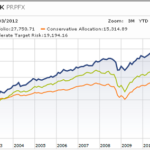In case you missed it, the Doing Business 2012 World Bank report ranks the UAE 33 out of 183 countries around the world in its ease of doing business index, a two-point jump compared to last year, placing it ahead of Qatar, Bahrain, Oman and other countries in the Middle East. Good news surely, if any were needed, for anyone looking to set up a new venture in the country.
However, for non-nationals currently running an import/export business from one of the UAE’s free zones, for example, such news won’t come as too much of a surprise. No doubt they’re already benefiting from the first class infrastructure and facilities on offer in the free zones, not to mention availing themselves of the excellent international trade services from HSBC and other major multinational banks in the region.
HSBC UAE is just one of the major banking names synonymous with international business in the Middle East. Indeed, its history in the region stretches back for more than a century. Barclays is another instantly-recognisable name, with deep connections to international finance in the MENA region. But home-grown banks have been equally as successful – even if their names don’t exactly trip off the tongue of the average UK national. A good example is the Abu Dhabi-based First Gulf Bank, described recently as the UAE’s best performing lender.
Many expatriates from around the world live and work in the UAE, enjoying a rich and varied lifestyle. Figures from the UK government suggest more than 100,000 British nationals are living, working and studying in the UAE, helping not only to drive up prosperity and development, but also aiding the establishment of a strong presence for British businesses.
The UAE is one of the United Kingdom Trade & Investment department’s designated high growth markets and is the UK’s 16th largest export market for goods globally. Last year, this amounted to around £4.7 billion. It is also the UK’s largest export market in the Middle East.
Around 40% of the exports to the UAE were re-exported around the region, a testament to the UAE’s importance as a regional import and export hub. The background to these impressive figures, says the government, was the UK’s strong historical links with the UAE.
“The UK and the UAE are committed to increasing bilateral trade in goods and services to £12 billion by 2015â€, says the UKTI.
“Personal relationships are key to doing business in the UAE. UK exporters are encouraged to have a face-to-face business dialogue with their UAE counterparts. It is essential to obtain legal, financial and taxation advice, along with doing the necessary research, all of which are critical when considering new markets.â€
Certainly, the myriad of export services offered by the major banks play a vital role in ensuring the success of the many thousands of foreign-owned companies now operating out of the UAE’s free zones. It’s hardly surprising the numbers grow year-on-year given the incredible incentives on offer. Such incentives include 100% foreign ownership and zero corporate and personal tax liability. There are no trade barriers or quotas imposed and no foreign exchange controls either. Import duties are negligible, too, with energy and real estate costs extremely competitive. Click here for more information on setting up a business in the UAE and elsewhere.











{ 0 comments… add one now }